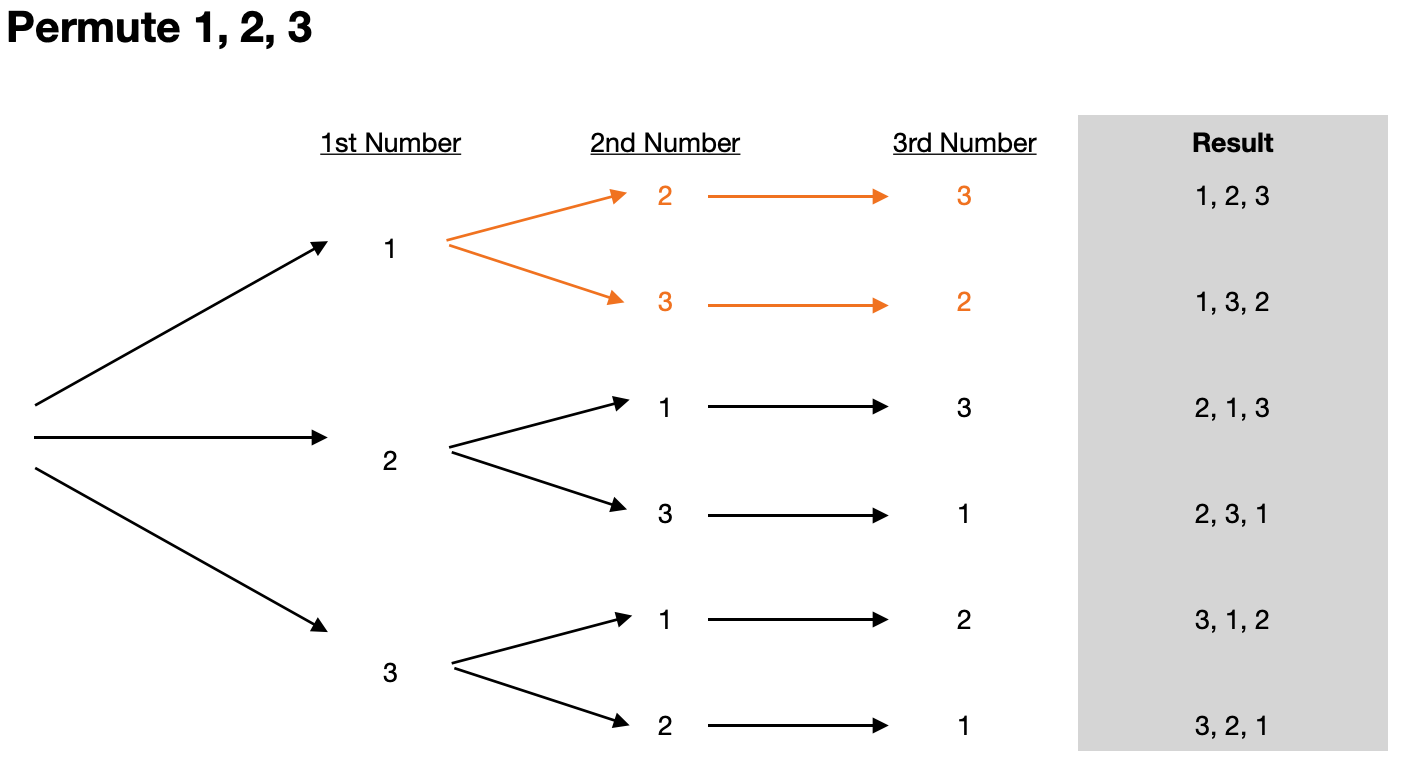

> from itertools import > data 2,6,9,3 > x.
#Permutations python generator
3, 2, 1 is a permutation of 1, 2, 3 and vice-versa. permutations(n,r) generator returns the permutation of n by r. A permutation refers to an arrangement of elements. Print 'CACHE HIT ' + str(s) + ' -> ' + str(cache)ĭynamic Programming using elegant way to implement DP in Python is using a decorator. Create your own server using Python, PHP, React.js, Node.js, Java, C, etc. So far, Ive put in a special case to reflect the symmetry of nCr, but Id still like to find a better algorithm that avoids the call to factorial(r), which is an unnecessarily large intermediate result.
#Permutations python code
The recursion tree for perm('abcd') is the following:Īnd if we add a couple of print to the code we can see what is been cached as well as the cache hits in action:īcd Īcd Ībd Ībc Ībcd Ive found a better algorithm for permutations that avoids large intermediate results, but I still think I can do better for combinations. Finding all permutations with repetition is a combinatorial problem like generating all -combinations of a set.

A common example (and a good story on how common usage. Introduction In this tutorial, we’ll present the recursive and iterative algorithms for generating permutations with repetition. It is interesting to look inside the recursion tree and see exactly what is being cached and when. A permutation is a set of objects selected from a base set of elements, however here the order matters. Before the recursive call, we check if the argument of perm() is already been computed in this case we return the cached results otherwise we compute it and we add the result to the cache. Combinations are the ways in which we can select a certain subset of. We can use this to speed up the previous code: Permutations refer to the different ways in which we can arrange a given list of elements. The idea behind DP is to cache the results of previous computations, usually in a hash table for fast lookups. If you want the results as lists instead of tuples, just cast them as list () Using the recipe for itertools.permutations I made this convenience function for you: def sortedperms (iterable, rNone): pool tuple (sorted (iterable)) n len (pool) r n if r is None else r for indices in itertools.product (range (n), repeatr): if len (set. For example: the number of ways in which characters from yup can be selected are yup, ypu, uyp, upy, puy, pyu, and not selecting any. We can do better than this using Dynamic Programming. Python for Loop Permutation is the method of selecting elements from a set in different ways. The problem with this snippet is that obviously its running time is N!. This translate into the following code (could be prettier if strings were mutable in python, but still)įor perm in permute(s + s): Permutations = char + permutations(rest of the string)

We want to compute all the permutations of a given string.


 0 kommentar(er)
0 kommentar(er)
